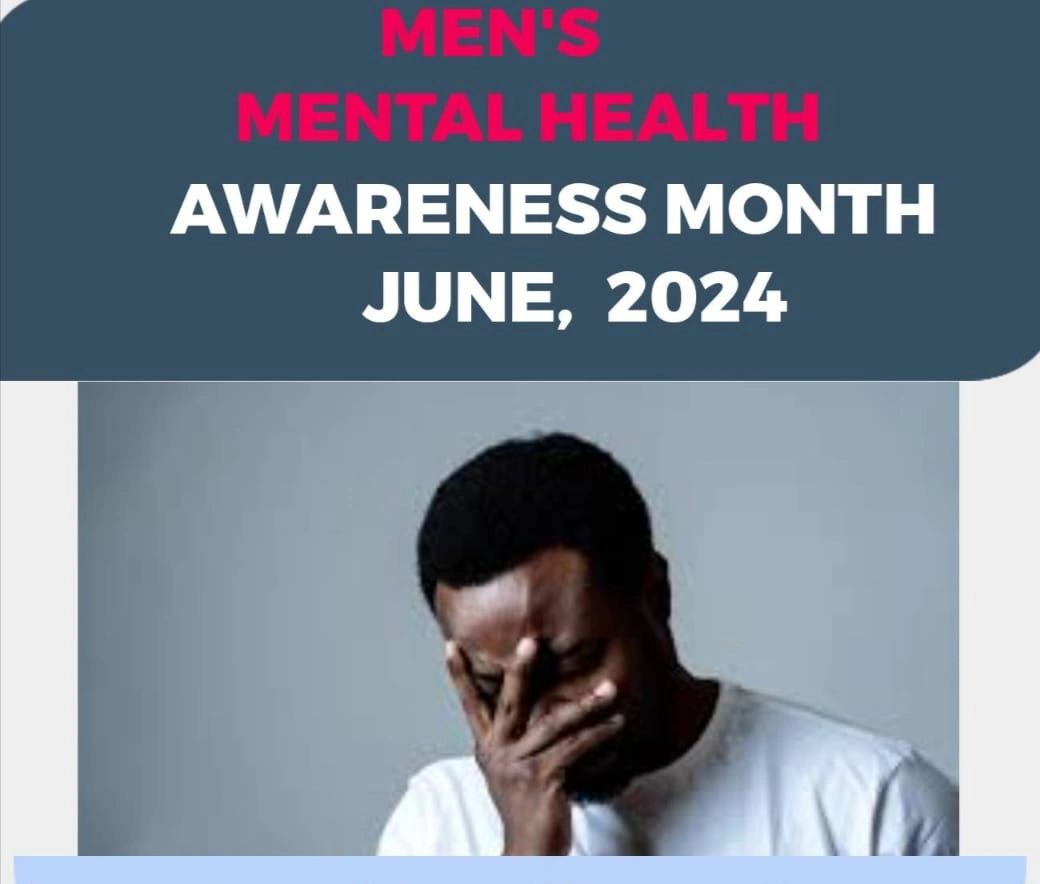Men’s Mental Health Awareness Month is recognized in June, and it serves as a crucial time to shed light on the mental health challenges faced by men around the world. Richard Burton, Vice President of Correctional and Residential Services at Volunteers of America, emphasizes the importance of individuals not feeling ashamed when discussing their mental health. He advocates for breaking down the stigma that often prevents men from seeking the help they need. Men everywhere must be bold and talk to a counselor about their mental health.
The statistics surrounding men’s mental health keeps rising. According to sources, it is estimated that 13% of Ghanaians suffer from a mental disorder, with 3% experiencing severe conditions. Despite this high prevalence, the treatment gap for mental health disorders in Ghana is over 98%. This means that the vast majority of individuals who need mental health care do not receive it. This gap highlights the urgent need for increased awareness, resources, and support for mental health services.
- Men’s Mental Health Statistics: Men are statistically less likely to seek help for mental health issues compared to women. However, they are more likely to die by suicide, with rates being 3.9 times higher than those of women. This stark contrast underscores the critical need for targeted mental health interventions and support systems for men.

- Stigma and Masculinity: Traditional masculine norms play a significant role in discouraging men from expressing their emotions and seeking help. Many men feel pressure to conform to societal expectations of stoicism and self-reliance, which can be detrimental to their mental well-being. The stigma associated with mental health issues and the fear of being perceived as weak often prevent men from opening up about their struggles.
- Common Mental Health Issues: Depression, anxiety, substance abuse, and post-traumatic stress disorder (PTSD) are prevalent among men. These conditions can severely impact an individual’s quality of life and, if left untreated, can lead to devastating consequences. It’s crucial to recognize the signs and symptoms of these disorders and seek professional help when needed.
- Risk Factors: Various factors contribute to the development of mental health issues in men. Trauma, social isolation, and chronic stress are significant risk factors. Men who have experienced traumatic events, whether in childhood or adulthood, are at a higher risk of developing mental health disorders. Additionally, social isolation, which can stem from a lack of supportive relationships or community connections, can exacerbate feelings of loneliness and depression.
- Importance of Support: Encouraging men to open up and seek help is vital for improving mental health outcomes. Support from family, friends, and mental health professionals can make a significant difference. Creating a supportive environment where men feel safe to express their emotions and seek help without judgment is essential. Mental health professionals, such as counselors and therapists, play a crucial role in providing the necessary support and treatment for men dealing with mental health issues.
Mental health is a critical aspect of overall well-being, and no one should feel ashamed to talk about it. Together, we can create a society where mental health is prioritized, and everyone has access to the support they need to lead healthy, fulfilling lives.
Speak to a counselor about your mental health conditions now!
Subscribe to gheducate.com for more credible information and updates




